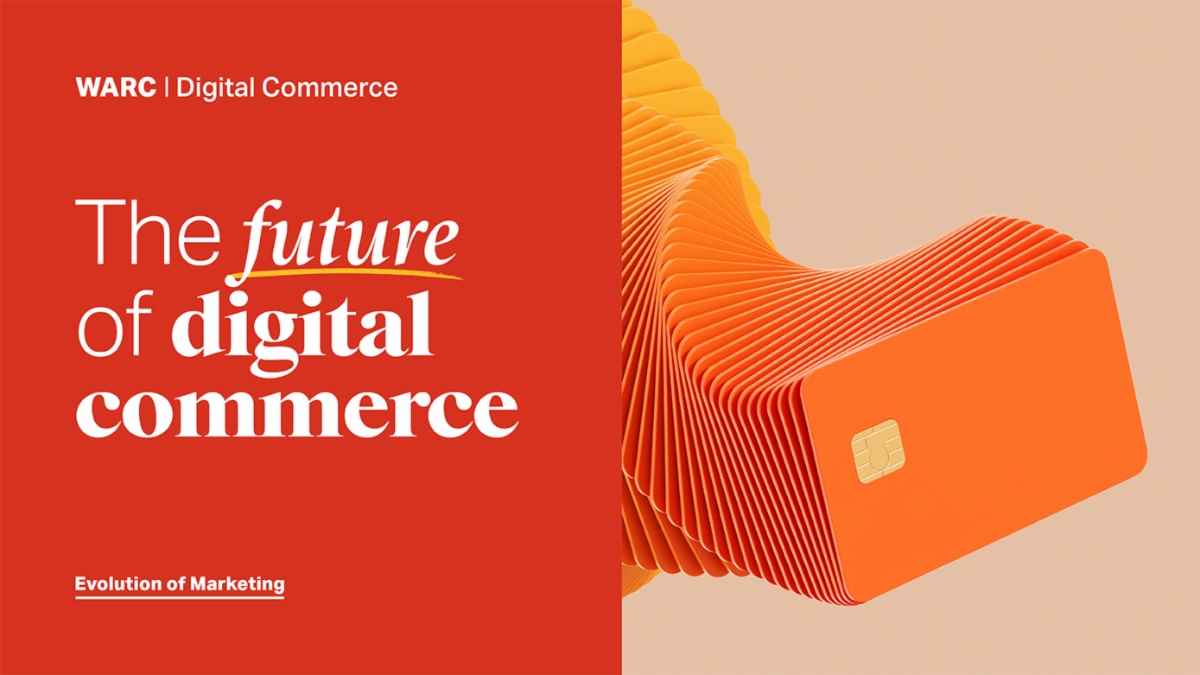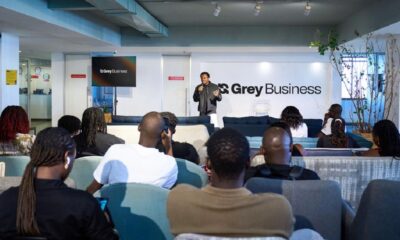Amazon’s ad revenue is forecast to reach $52.7bn (+24.4%) in 2024 and $68.0bn in 2025 (+18.9%)
AI-enabled e-commerce is projected to reach $16.8bn by 2030
WARC releases The Future of Digital Commerce 2024 report highlighting e-commerce trends in four key areas: retail media, omnichannel marketing, AI, and cloud-based data clean rooms
4 June 2024 – Retail media advertising spend is forecast to reach $153.3bn worldwide in 2024, according to WARC’s latest analysis. The continued growth is fuelled by advances in off-site targeting as commerce data infuses into non-retail environments. All the while, Amazon continues to tighten its grip on the retail media market.
WARC Digital Commerce has today published its annual report looking at the trends having an outsized impact on the future of this dynamic and hyper-competitive space.
Gregory Grudzinski, Reports Editor, WARC Digital Commerce, and author of the study, says: “Following the explosion of digital commerce onto the advertising landscape, this report looks at trends in four areas that are having a profound impact on the future of this fast-growing and complex space to provide an overarching view of what the future holds and what marketers need to do today to prepare for it.”
Key insights outlined in WARC’s Future of Digital Commerce 2024 are:
Retail media ad investment maintains double-digit growth fuelled by off-site targeting
Investment in retail media continues to grow at a rapid pace. According to WARC’s latest analysis, global retail media advertising spend will reach $153.3bn in 2024, up 13.7% year-on-year. This marks a slight acceleration on the 13.0% growth recorded last year but falls short of the +14.3% forecast for social media.
Amazon’s dominance continues, and is set to maintain near 25% growth in 2024, to reach $52.7bn, per WARC forecasts, bringing its global share of retail media spend to 37.3%. Excluding China, this equates to 62.3% of all retail media ad spend.
Chinese platform Pinduoduo, which also owns e-commerce platform Temu, is set for a +31.3% expansion this year to earn $28.2bn, accounting for 45.9% of all retail media spend in China. Walmart reported a 26% year-on-year rise in e-commerce ad revenue in its latest earnings.
However, retail media spend growth is forecast to slow to 10.6% in 2025, with spend reaching $169.5bn, as trade marketing budgets are steadily exhausted.
AI is revolutionizing marketing. By 2030, the AI-enabled e-commerce market is projected to reach $16.8bn
Artificial Intelligence (AI) presents an opportunity for brands to personalize products, promotions, and marketing efforts at an unprecedented level, vastly exceeding prior customization attempts.
AI-driven tools can be used to identify meaningful commonalities among shoppers and create activations targeting these commonalities, such as customized product detail pages, social media posts, and loyalty program solicitations.
The ability to quickly render realistic or hyper-realistic images of people, products, and packages will be a powerful tool for creatives allowing more time for strategic planning and creative thinking.
Mert Damlapinar, Managing Principal, EPAM Systems, says: “AI is not an optional technology but a core component of e-commerce strategy, empowering brands to seamlessly integrate personalized experiences, optimize operations, and drive business growth.”
By 2030, the AI-enabled e-commerce market size is projected to reach $16.8bn, growing at a compound annual growth rate (CAGR) of 15.7% in the next seven years, according to InsightAce Analytic’s data.
Changes in consumer behavior and advancements in digital technology are shaping the omnichannel landscape
As the omnichannel space becomes increasingly complex, direct-to-consumer (DTC) brands are seeing significant growth fueled by increased consumer acceptance of online subscription offerings. DTC sales are expected to reach $161.2bn in 2024, and $591.3bn by 2032 at a CAGR of 15.4%, according to Shopify.
Brands with effective omnichannel customer engagement strategies retain on average 89% of their customers, compared to a rate of 33% for companies with weak omnichannel customer engagement, according to Invesp.
At Kroger’s Q4 and fiscal 2024 earnings call in March this year, Rodney McMullen, Chairman and CEO of the US retail company, said: “Customers value the ability to shop on their own terms with zero compromises, and we are increasing the number of omnichannel households in our ecosystem. Customers who shop both in-store and online spend three to four times more compared to in-store-only shoppers.”
As more time is spent on social media (averaging 2.5 hours/day globally), social commerce, and increasingly gaming commerce, are helping shoppers discover new brands and products.
Over the next 12-24 months, many challenges for omnichannel marketers will center around measurement and optimization. Research published in WARC’s Future of Measurement 2024 report, revealed that only a small percentage of marketers are following measurement best practices; 22% say they don’t do any attribution modelling at all.
Measurement and privacy will continue driving ‘clean room’ adoption
Data clean rooms, such as the Amazon Marketing Cloud, is an environment where brands access anonymized shopper data. They allow retailers and brands to work together to create and target high-value customer segments. This provides a more complete view of the customer journey and enables accurate attribution of marketing investments to tangible business results.
According to a survey by the CMO Council, 54% of marketers in North America cited the ability to measure campaign results as a leading driver for their data clean room strategies.
Data governance is crucial for clean room adopters to ensure the ethical and compliant use of consumer data within these environments, essential to maintain consumer trust and reduce concerns of regulatory bodies.
Brands without extensive first-party data may need to limit clean room functions to media attribution.
Read a sample report of The Future of Digital Commerce here. WARC Digital Commerce subscribers can read the report in full. A podcast is available from today.
The Future of Digital Commerce report is based on a combination of exclusive interviews with leading brands, agencies and tech companies, as well as data and case studies from WARC, external research studies and reports. It is part of WARC’s Evolution of Marketing, a content programme of in-depth forward-looking reports focusing on the future of the marketing discipline by drawing on the latest evidence, emerging trends, technologies, media, social influences and other drivers of change.


 Business4 days ago
Business4 days ago
 Business3 days ago
Business3 days ago
 Events3 days ago
Events3 days ago
 Business4 days ago
Business4 days ago
 Business4 days ago
Business4 days ago
 Energy3 days ago
Energy3 days ago
 Energy2 days ago
Energy2 days ago
 Business4 days ago
Business4 days ago













